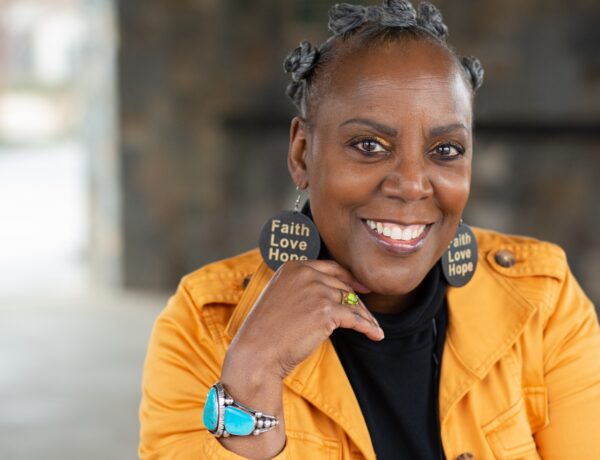Claire Fuller is the author most recently of The Memory of Animals (Tin House). Her previous novels include Our Endless Numbered Days, which won the Desmond Elliott Prize; Swimming Lessons; Bitter Orange; and Unsettled Ground, which won the Costa Novel Award and was a finalist for the Women’s Prize for Fiction. She has an MA in Creative and Critical Writing from the University of Winchester and lives in Hampshire with her husband.
Hi Claire, welcome to Famous Writing Routines, great to have you here with us today! The Memory of Animals is described as a novel about freedom and captivity, survival and sacrifice. Can you expand on these themes and their significance in the story?
Thanks for inviting me! The Memory of Animals is about Neffy, a 27-year-old woman who volunteers for a vaccine trial in a London clinic. She has a bad reaction to the drug and when she wakes up several days later she discovers that the world has turned without her and she’s stuck inside the clinic with four strangers because outside there is a global pandemic.
Neffy’s first job is studying octopuses in a lab, and then she works in an aquarium, and we learn how she offered to donate a kidney to her father. Neffy might be the only person in the unit who has immunity for the virus outside and as the group begins to run out of food she must decide whether she is willing to risk going out for them. So survival and sacrifice, freedom and captivity play across all aspects of this novel: whether it’s better to stay inside and live a sheltered, safe life, or step outside and risk everything.
The book is being compared to two captivating novels, Never Let Me Go and Station Eleven. How do you feel about this comparison and what do you think sets your book apart?
Well, I love both those novels, so firstly, I’m very flattered. I can see where the comparisons come from – in perhaps what might be some speculative elements – but of course my novel is very different to either of these books. After offering a kidney to her father, Neffy goes on to get involved in a more experimental treatment to try to help him, and this idea can perhaps be compared to Never Let Me Go. But the central idea to that story is humans being bred and raised to donate body parts to save someone else, even though that might mean death for the donor, whereas it’s a peripheral idea in The Memory of Animals.
Station Eleven describes an America years after a pandemic has struck, with the characters moving through the world, whereas The Memory of Animals shows the time as the pandemic happens, and the characters are stuck inside watching events unfold through the windows. I’d even say that my novel is not really a pandemic novel; it’s more of a locked room mystery with a sideline in pandemics!
In what ways does The Memory of Animals differ from, or build upon, your previous works such as Unsettled Ground?
If any reader is expecting something similar, they need to brace themselves. As my editor likes to say, each novel is very different from what I’ve written before but all of them have a Claire Fuller-ness about them. I can see similar themes, although they don’t crop up with any deliberation on my part. Themes of isolation, of humans being set-apart from society, of people living in places that aren’t meant for, or suitable for, human habitation.
Unsettled Ground won the Costa Novel Award in 2021 and was shortlisted for the Women’s Prize for Fiction. Can you share with us your experience of writing this book, and what inspired you to tackle the themes explored in this novel?
I don’t start with a theme to explore. Themes come later when I’m maybe three quarters of the way through the first draft. The inspiration for Unsettled Ground was coming across a very small caravan in the woods near my house. It had been vandalized and clearly no one was living in it, but I started wondering who might have done so in the past, how they had managed and what was their life like before and after. And the idea of the main character, Jeanie came to me. The themes of being an outsider and of rural poverty grew out of the situation that Jeanie finds herself in. But once I’d realized that this was what I was writing about, I looked around for other contemporary British fiction with rural poverty at its core and I was surprised not to be able to find any, although rural poverty is a big issue in England.
Your novels have been translated into over 20 languages, a testament to their universal appeal. How does it feel to know that your stories are resonating with readers around the world?
It’s a wonderful thing. I get lots of messages from readers from different countries telling me which books of mine they’ve read and enjoyed. And I have shelves of foreign copies of all of my books, each with their different covers and words that I cannot read! Unfortunately I can’t read any language other than English.
Your short story “Baker, Emily and Me” won the BBC Opening Lines competition, and “A Quiet Tidy Man” won the Royal Academy and Pin Drop short story award. How do you approach writing short fiction differently from your novel writing?
If I’m going to write a short story I set out with that intention. Sometimes I have gone on to develop a finished short story or piece of flash fiction into a novel, but I’ve never started a short story and kept going. I find short stories really difficult. Just as with my novels I don’t plan them, I let them unfold in an organic way, finding out what happens as I write. But unlike with a novel (I’ve written five novels and they’ve all been published) I often struggle to finish them, and I have many unfinished ones on my laptop. But when they do work, I love how sometimes they come together so neatly.
Can you tell us about your writing routine? What does a typical day look like for you?
Before I became a full time writer I ran a marketing agency for 23 years and I’m still not out of that office routine – which is fine with me. I read while I have breakfast (and often take a picture of my book for Instagram) and then I’m at my desk at 9am. I always try to start writing immediately, but I find myself answering emails, sorting out my diary and my day, and sometimes don’t open the manuscript until about three or four in the afternoon.
Then I work until about six. The next day I revise what I wrote the day before and write some new words. This is what happens when I’m writing a first draft and not involved in promoting a new book. If I’m revising or editing a novel, then I’ll do this from 9am until 6pm because I love it. If I’m promoting a new book, my day gets swallowed up with publicity and I’m lucky if I get half an hour of writing, but I do try to do a little every day because then the story stays alive in my mind even if I’m not putting words on the page.
If you could have a conversation with any author throughout history about their writing routine and creative process, who would that person be?
Oh, it would definitely be Shirley Jackson. I love her work and I’d love to know how she really did it. I’ve read the collection of her letters which was published recently which gave some clue to the difficulties she went through but it was clear she said different things depending on who she was writing to.
I’d love to know about the books you’re reading at the moment. What have been some of your favorite recent reads?
So many! I do read a lot even when I write. I loved William Landay’s All That is Mine I Carry With Me. It’s an excellent literary thriller, just like his earlier novel Defending Jacob. I’m also having a big Sue Miller binge having discovered her a couple of years ago with her novel, Monogamy. Now I’m reading all of her backlist and loving everyone – she writes human interactions and emotions with such precision. And finally another literary thriller-type novel that I’ve just finished and really enjoyed is, I Have Some Questions for You by Rebecca Makkai.
What does your current writing workspace look like?
I moved house last summer to a converted Methodist chapel and I’m lucky enough to have a dedicated writing room up in the roof space. I sit at my desk in front of a large velux window which overlooks the back garden and beyond that into a field with a couple of goats in it. There’s a daybed in the room (sometimes afternoon naps are taken), which doubles as a spare bed for guests, and because I’ve recently had someone to stay with, the room is actually tidy.




No Comments